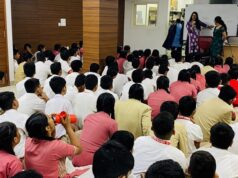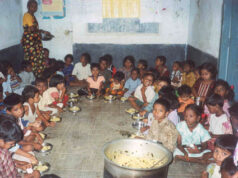Now that I (as many of you) have enjoyed the World Cup 2014, allow me to register my protest on behalf of Brazilian taxpayers against this wanton public expenditure. What a colossal waste!
Governments around the world organise and host national and international sports events. Governments also support sportspersons representing their respective jurisdictions, by paying for their training, expenses, salaries, etc. We take pride in our fellow countrymen’s performance in these events and root for their success. We celebrate their victories and mourn their losses, almost as much as athletes themselves. Also, these emotions are not restricted to events that have national character to it, but are also found in privately organised and managed events such as Formula1 car race, club football, premier league cricket, professional tennis, etc.
While recently concluded world cup football and commonwealth games were distinctly national in character, premier league football in England that kicks off in a couple of days has no one particular national identity.
Figure: The Chelsea Football Club squad for 2014-15 English Premier League season – Among the nationalities represented in the team are English, German, Spanish, Brazilian, Belgian, Czech, Serbian, French, Nigerian, Dutch, Australian, Egyptian, Danish and Ivorian
Image courtesy: ChelseaFC
Given all this, I would like to ask a question that I have been thinking about lately, “Do we need government patronage of sports?”
The justification for any government intervention arises from ‘market failure’ in provision of goods and services, such as in provision of public goods like roads, police, courts, etc. In case of public goods – goods which are non-rival and non-excludable – there may be a case for government’s role. However, I fail to see a similar role for government in training athletes and organising sports events, a case of private gains borne out of social costs.
At USD 14 billion, the recently concluded World Cup was the most expensive in tournament’s history. This money was spent on renovating old stadiums and building new ones, improving infrastructure, and on security measures, among other things. While a lot of us got to enjoy this once-in-four-year extravaganza for a period of few weeks, the cost is borne by a select few who had little or no say in the matter (in this case, the Brazilian taxpayers).
It is as if Brazilian taxpayer’s (of course, without their knowledge and consent) took a huge debt for a one night party they organised for all their friends, families and even for strangers. Now that the party is over, they are left with a hangover which is going to last for years. And they didn’t even win the cup, which could have otherwise softened the blow. (Maybe Germany, on account of winning the cup and beating Brazil to pulp on their road to victory, should extend soft loans to Brazil.)
It could be claimed that it is not all bad. A lot of these expenditure can be claimed to have helped improved infrastructure, but there is nothing to suggest that these infrastructural developments is what was most urgently needed, or that they wouldn’t have come about independent of government’s direct investment.
It is not as if government’s role is indispensable for organising such large events. UEFA Champions League, one of the biggest football event, has been privately organised every year.
Today the ecosystem within which most of the athletes have to compete on national or international platforms are the ones where representation is by state. The argument goes that without state support, many of these sports will die. Evidence does not support this argument.
Individual sports such as tennis, golf and boxing, and team sports like baseball, basketball, football, cricket, and now even kabaddi in their privately organised versions have thrived and prospered. Left on their own, these sports will have to find a way to monetise themselves, something what kabaddi has successfully managed to achieve.
State-organised festival of sports like the World Cup tournaments and Olympics have been going on for a long time. People give a variety of reason to support the need for a national team and a national event. Some say that it promotes national integration, while others say that it helps instil essential human values like honesty, discipline and respect among players and spectators alike.
It is not the job of the government to instil desired values in our children and youths, it is the job of our parents and teachers. Besides, privately organised events will have incentives to minimise cost which is absent from a government organised event.
Tomorrow is Independence Day. I too, like most of you, identify myself as an Indian and feel proud when an Indian wins a medal in Olympics and commonwealth games or even when he gets a Fields medal. I, however, do not agree with forcing everyone to pay for my pleasure and pride, as it happens in the case of state funded and state represented sports events.
I would rather have government focus on providing essential services like ensuring rule of law than making sure we win Olympic medals.
If you feel otherwise, allow me to ask you, “How much are you willing to pay for this privilege?”
Post Disclaimer
The opinions expressed in this essay are those of the authors. They do not purport to reflect the opinions or views of CCS.






